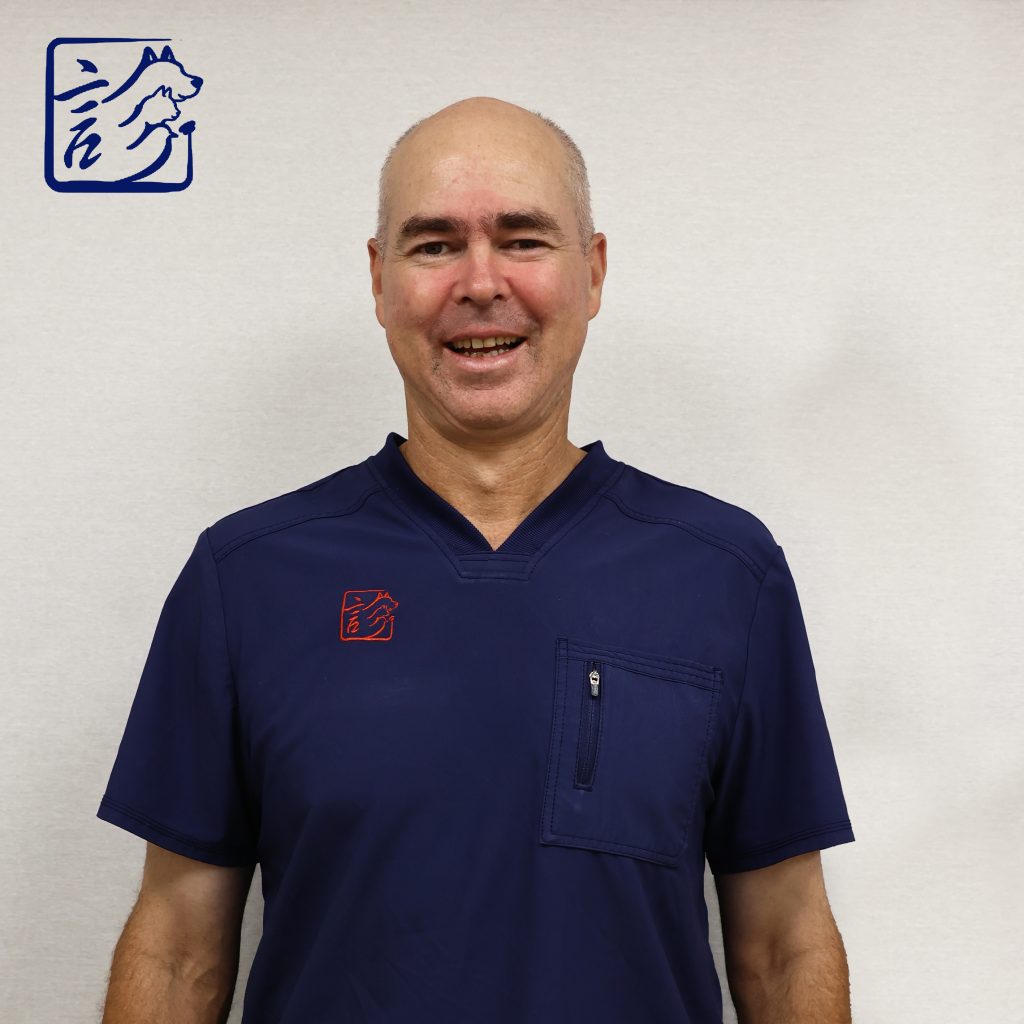
Meet
Dr. Roy Drew
Dr Roy has been a constant for Victory Animal Hospital over the last 17 years. His extensive knowledge in cardiology, medicine and ophthalmology has improved patient care and inspired his colleagues to develop further. He was fortunate to spend time under Dr Bussadori, a world renowned veterinary and paediatric cardiologist, learning the finer details of echocardiography and cardiology.
Dr Roy is meticulous in his case management and client care, often explaining in depth the complexities of each case he manages. His interests in veterinary science include soft tissue, especially abdominal and oncological surgery, and ultrasonography especially cardiac ultrasound in which he is has undergone further training with Dr Paul Brazzell and Prof. Claudio Bussadori, ophthalmology and advanced medicine case.
Dr. Roy spends his spare time outdoors playing golf, exercising, and enjoys travelling all over the world to further his passions for these activities.
Roy has a
SPECIAL INTEREST IN
Cardiology is a specialised branch of medicine that focuses on the study and treatment of the heart and its associated blood vessels. Cardiologists are medical professionals who possess expertise in diagnosing and managing a wide range of heart conditions.
A comprehensive understanding of cardiology encompasses several key areas:
- Cardiac anatomy and physiology: This involves a deep knowledge of the heart’s structure, function, and the intricate mechanisms that regulate its pumping action. Cardiologists must be proficient in understanding the normal electrical activity of the heart, as well as the potential disruptions that can lead to arrhythmias.
- Cardiac pathophysiology: This area explores the underlying causes and mechanisms of various heart diseases, such as coronary artery disease, heart failure, valvular heart disease, and congenital heart defects. Cardiologists must be able to identify the signs and symptoms of these conditions, as well as understand the physiological changes that occur within the heart and circulatory system.
- Cardiac diagnosis: Cardiologists employ a variety of diagnostic techniques to assess the health of the heart and identify any abnormalities. These may include electrocardiograms (ECGs), echocardiograms, stress tests, cardiac catheterisation, and imaging studies like CT scans and MRIs.
- Cardiac treatment: Once a diagnosis has been made, cardiologists develop tailored treatment plans to address the specific needs of each patient. This may involve medications, surgical interventions, lifestyle modifications, or a combination of these approaches.
Cardiologists play a vital role in preventing, diagnosing, and treating heart diseases, which remain a significant public health concern worldwide. Their expertise and dedication contribute to improving the quality of life for millions of people affected by heart conditions.
Primary care is the day-to-day healthcare given by a health care provider. Typically, this provider acts as the first contact and principal point of continuing care for patients within a healthcare system, and coordinates other specialist care that the patient may need.
